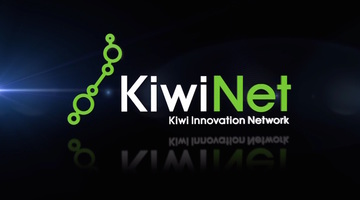Professors Grant Covic and John Boys (University of Auckland) are pioneers in wireless power transfer – the high-efficiency transfer of electricity across large air gaps. The technology’s applications are diverse, from charging electric vehicles wirelessly to powering portable devices on the move.
In this video clip, Grant and John describe how, in the technology’s early days, it was almost impossible to convince anyone to fund the research. Now, though, the situation couldn’t be more different – the technology is licensed by seven companies worldwide, there are nearly 30 doctoral students at the University of Auckland working on inductive power transfer and car manufacturers are eager to incorporate the technology in their vehicles.
Points of interest
- How do the model systems shown in the video indicate that wireless power transfer has occurred?
- Which factors might have contributed to the change of interest in the technology?
Transcript
Prof Grant Covic
So we’ve pioneered wireless power transfer. What that enables is power to be transferred across large air gaps at high efficiency for lots of applications, and the latest and greatest of these is electric vehicle charging and power on the move. Going to a wireless world is something we’re all looking for. Really, where the nutshell and the excitement is is in somebody’s home in applications that we use every day, and so we’re starting to see this proliferate into handheld devices but actually into vehicles and making it possible for people to accept the technology because it’s easy and it’s intuitive.
Prof John Boys
When we started doing this, everyone said it was impossible, and we couldn’t get funding because people said, “That’s impossible.” And the only people who would give us money were UniServices. All the other funding agencies weren’t interested. It was too risky to even consider. We made a model system, and we showed it to 26 different companies before one of them said, “Wow, we really like this. We’ll go with it.”
Prof Grant Covic
We’ve got an incredible team of almost 30 PhDs working in this field, and we’re connected to lots of companies globally, so we have seven companies that are licensing this technology from us, and we’re continuing to innovate and work with those companies continuously, and so what other people worldwide are looking to do is to somehow connect with us as effectively as possible.
So if you’d asked 3 years ago of the car manufacturers, “Was this technology going to be taken on board?”, the answer probably would have been, “It’s unlikely.” Today it’s a no-brainer. They’ve basically all said, “This is the way of the future. We’re going this way. We’ve got to standardise it, in fact, we need the standards to catch up quickly, otherwise we’re going to have systems in the marketplace.”
Prof John Boys
And to produce a technology which is good enough to attract some of the world’s biggest companies to come here and start looking at it for their own activities, that’s fantastic, I mean, you could never have written this down and scripted it and said that’s what you’ve got to do, because it would have been said, “Well, that’s outlandish. That won’t happen.” But it has happened.
Prof Grant Covic
To be able to be involved in something in which I can say to my kids, “I’m making a difference, and look, I was involved in actually initiating that.” That’s pretty exciting.
Acknowledgement
Video courtesy of Kiwi Innovation Network Limited
© Kiwi Innovation Network Limited, 2013


